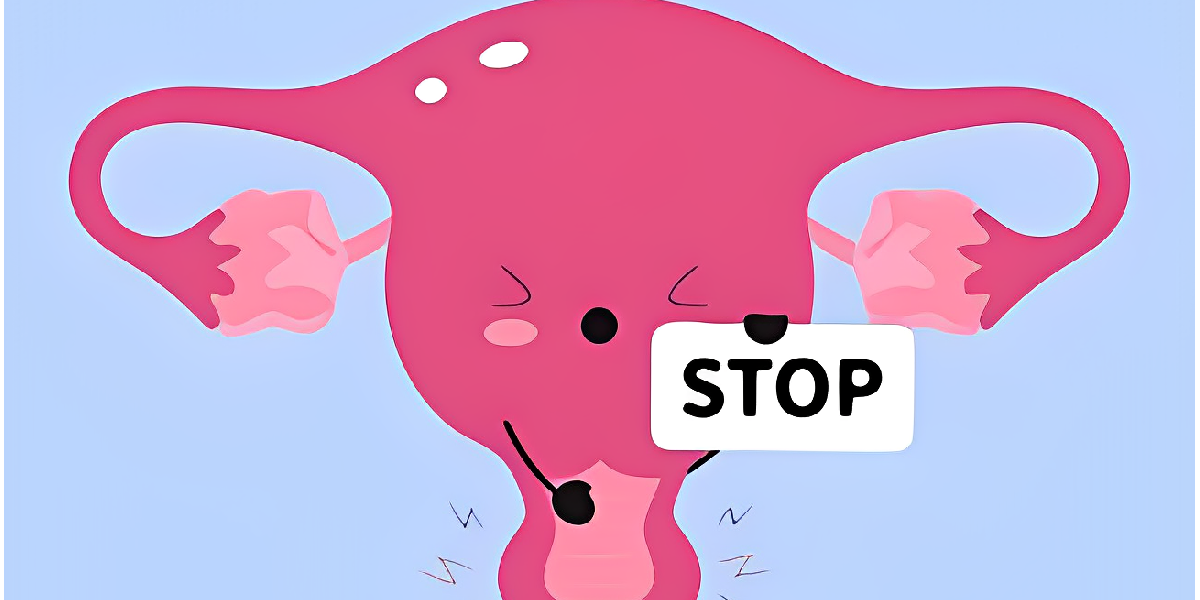© Copyright 2018. All Rights Reserved.
Introduction
People who experience infertility often encounter challenges and emotional challenges. One often overlooked aspect of infertility is stress, although many factors can contribute to infertility. We'll discuss different solutions and strategies for managing infertility in this blog that will explore the relationship be
Infertility and Stress
-2023-11-07-654a6753b41b7.png)
Understanding Infertility and Stress
Infertility is defined as the inability to conceive after a year of unprotected intercourse for couples under 35, or after six months for those over 35. It can result from a wide range of factors, including medical conditions, hormonal imbalances, lifestyle factors, or unexplained causes. The experience of infertility is a rollercoaster of emotions and challenges, and the resulting stress can affect both partners differently.
- Emotional Toll: Infertility often leads to a whirlwind of emotions, including sadness, frustration, guilt, and even depression. The constant cycle of hope and disappointment can take a significant toll on one's mental well-being.
- Relationship Strain: For couples, infertility can place immense strain on the relationship. The pressure, disappointment, and the feeling of inadequacy can lead to communication breakdowns and conflicts.
- Social Pressure: Society's expectations and well-meaning but often misguided advice from friends and family can compound the stress. Insensitive comments and unsolicited advice can make individuals and couples feel isolated and anxious.
Coping with Infertility-Related Stress
While infertility is a challenging and emotionally taxing journey, there are several strategies to help individuals and couples cope with the stress it brings.
- Seek Support: Reach out to friends and family who are understanding and empathetic. Consider joining support groups where you can connect with others experiencing similar challenges.
- Open Communication: Maintain open and honest communication with your partner. Discuss your feelings, fears, and expectations. Remember that you are in this together and supporting one another is crucial.
- Self-Care: Prioritize self-care, both physically and emotionally. Engage in activities that bring you joy, relaxation, and stress relief. This might include exercise, meditation, or pursuing hobbies.
- Educate Yourself: Knowledge is empowering. Learn about your condition, treatment options, and the process involved. Being informed can help alleviate some of the fear and uncertainty.
- Professional Help: Don't hesitate to seek professional help, such as counseling or therapy. A mental health expert can provide guidance, coping strategies, and a safe space to express your emotions.
- Set Boundaries: Politely but firmly establish boundaries with well-meaning friends and family. Let them know what support you need and what comments or advice are not helpful.
- Explore Alternative Paths: While infertility can be disheartening, it's essential to explore alternative paths to parenthood, such as adoption or surrogacy. These options can offer hope and reduce stress.
The Impact of Stress on Fertility
It's crucial to recognize that infertility-related stress can also impact fertility itself. Chronic stress can lead to hormonal imbalances and affect the body's ability to conceive. This creates a challenging cycle where the stress caused by infertility can further exacerbate the issue.
Hormonal imbalances:
-2023-11-07-654a69f2ce446.png)
In the body, hormonal imbalances occur when hormone production and regulation are disrupted. A hormone is a chemical messenger that controls a number of physiological processes, including metabolism, growth, mood, reproduction, and more. Health problems can occur when these hormones are produced in excess or insufficient amounts. Hormonal imbalances are summarized here:
- A thyroid hormone regulates metabolism and energy production. There are conditions such as hypothyroidism (mild production of hormones) and hyperthyroidism (great production of hormones) that can result from imbalances.
- The hormone insulin regulates blood sugar levels. When blood glucose levels aren't properly regulated, diabetes may occur.
- The body produces estrogen and testosterone as sex hormones. Hormone-related cancers and polycystic ovary syndrome can be caused by hormonal imbalances.
- Cortisol, one of the adrenal hormones, plays a key role in the management of stress responses. A condition like Cushing's syndrome can result from overproduction, while Addison's disease can result from underproduction.
- Physical development requires growth hormone. An imbalance may stunt a child's growth, while an imbalance in an adult may cause various health problems.
- A body's calcium levels are controlled by parathyroid hormones. It is possible to have hyperparathyroidism or hypoparathyroidism as a result of hormonal imbalances.
- A sleep-wake cycle is regulated by melatonin. Insomnia can be caused by imbalances.
- In addition to affecting mental and physical health, chronic stress can lead to imbalances in stress hormones, such as cortisol.
- Endocrine System Hormones: The pituitary gland produces hormones that control other glands in the body. It is possible for various bodily functions to be affected by imbalances.
- Gonadotropins are hormones that regulate the function of the gonads (ovaries and testes). Sexual development and fertility are affected by imbalances.
Genetics, lifestyle, diet, stress, and medical conditions can all cause hormonal imbalances. Symptoms of hormonal imbalances vary widely, but they can include fatigue, mood swings, changes in weight, irregular periods, and others. It is often necessary to conduct blood tests and perform medical evaluations in order to make a diagnosis.
It depends on the specific hormone involved and the underlying cause of hormonal imbalances. There are several ways to treat this condition, including medications, lifestyle changes, hormone replacement therapy, and surgery if it is severe. The role of hormone balance in maintaining overall health and well-being cannot be overstated. Getting the right diagnosis and treatment requires the consultation of a healthcare professional.
Insufficient Libido:
-2023-11-09-654d09a404ccf.png)
Insufficient libido, also known as low libido or low sex drive, is a persistent lack of interest or desire for sexual activity. Individuals of any gender and age can be affected by it. An individual's quality of life and relationships may be affected by this condition due to its various physical and psychological causes.
Symptoms include:
- An absence or reduced interest in sexual activities.
- Sexually initiating or responding to a partner's advances rarely.
- Having feelings related to one's own libido, such as frustration, guilt, or inadequacy.
- Lack of arousal or difficulty maintaining it.
- It is less common to think or fantasize about sexual things.
There are many factors that can lead to low libido, including:
- Hormonal imbalances, chronic illnesses, and side effects from medications are examples of physical health issues.
- Relationship problems, stress, anxiety, or depression are all psychological factors.
- A poor diet, inactivity, and substance abuse are lifestyle factors that contribute to obesity.
- Low self-esteem or past trauma are emotional factors.
Insufficient libido is treated based on its underlying causes. In most cases, a combination of medical and psychological interventions is required:
- Treating any underlying health issues or adjusting medications that may contribute to low libido is important.
- An individual may seek counseling or therapy if they are experiencing psychological or emotional problems.
- Maintaining a healthy lifestyle through balanced nutrition, regular exercise, and stress management.
- Hormone therapy and medications may help address hormonal imbalances in some cases.
Prevention: Maintaining a healthy lifestyle and dealing with stress and relationship problems promptly can prevent insufficient libido. In order to address this condition, open communication between partners and seeking medical assistance when necessary are essential.
Infertility:
An inability to conceive after a year of regular, unprotected sexual contact is generally considered infertility. Both men and women can experience it, and it can be caused by a variety of factors. There are several primary causes of infertility, including:
- Women who suffer from ovulation disorders, such as polycystic ovary syndrome (PCOS) or hormonal imbalances, are more likely to experience infertility.
- Incorrect fallopian tube or uterine structure can affect fertilization.
- Factors associated with male infertility include low sperm counts, poor sperm motility, and abnormal sperm morphology.
- People's fertility can decline as they age, particularly women.
- Men and women are affected differently by lifestyle factors, such as excessive alcohol consumption, smoking, and obesity.
- Diabetes, thyroid disorders, and autoimmune diseases are some of the medical conditions that can affect fertility.
- Some cases of infertility cannot be explained by any clear cause.
Stress and emotional challenges can accompany infertility for those who experience it. Anxiety, frustration, and sadness can accompany the journey to parenthood. To manage the emotional aspects of infertility, it can be helpful to seek the support of healthcare professionals and counselors.
If underlying causes of infertility are identified, various treatment options are available. Approaches that are commonly used include:
- Infertility drugs can increase sperm production and stimulate ovulation.
- During intrauterine insemination (IUI), sperm is placed directly into the uterus to increase fertilization chances.
- Embryos are transferred to the uterus after being created outside the body using In Vitro Fertilization (IVF).
- Nutrition, exercise, and stress reduction can enhance fertility through lifestyle modifications.
- In some cases, surgery is an effective way to address structural issues, such as blocked fallopian tubes and abnormalities of the uterus.
Infertility is a journey unique to each person or couple. The emotional toll of treatment should be respected by friends, family, and healthcare professionals.
Consult a medical professional if you or a loved one is experiencing infertility. Reproductive endocrinologists and fertility specialists can provide tailored guidance and solutions for your specific needs.
Finally, infertility is a topic that often carries a stigma, but open and honest discussions can help reduce isolation experienced by many people. I invite you to join me in creating a supportive and understanding environment for those who are experiencing infertility.
Therapies:
Stress and infertility are interconnected issues that can have a significant impact on a person's overall well-being and quality of life. Stress, whether it's related to the challenges of fertility treatments or other life circumstances, can exacerbate infertility problems, creating a vicious cycle. However, various therapies and interventions can help address both stress and infertility, offering potential solutions for individuals or couples struggling with these challenges.
- Mind-Body Therapies: Mind-body therapies, such as mindfulness meditation, yoga, and relaxation techniques, can help individuals manage stress and promote emotional well-being. These practices can reduce anxiety and improve the body's response to stress, potentially enhancing fertility outcomes.
- Counseling and Support Groups: Infertility can be emotionally taxing, and individuals or couples experiencing it often benefit from counseling and support groups. These provide a safe space to express emotions, learn coping strategies, and connect with others who are facing similar challenges.
- Cognitive-Behavioral Therapy (CBT): CBT is a structured, goal-oriented therapeutic approach that can help individuals identify and change thought patterns and behaviors contributing to stress. It has been shown to be effective in reducing anxiety and depression, which are common comorbidities in those experiencing infertility.
- Assisted Reproductive Therapies: For individuals experiencing infertility due to medical factors, assisted reproductive technologies (ART) like in vitro fertilization (IVF) offer solutions. These medical interventions can address physical causes of infertility, helping couples achieve pregnancy.
- Acupuncture: Some research suggests that acupuncture may improve fertility by reducing stress and increasing blood flow to the reproductive organs. Many individuals consider it a complementary therapy to standard medical treatments.
- Nutrition and Lifestyle Modifications: Adopting a healthy lifestyle with a balanced diet, regular exercise, and stress reduction practices can positively impact both stress levels and fertility. Managing weight, avoiding excessive alcohol and tobacco, and ensuring proper nutrition are vital.
- Stress Reduction Techniques: Techniques such as progressive muscle relaxation, deep breathing exercises, and biofeedback can help individuals manage stress, promoting a more conducive environment for fertility.
- Medical Evaluation and Treatment: If infertility is linked to specific medical issues, such as hormonal imbalances or structural abnormalities, medical treatments and interventions may be necessary. Consultation with a reproductive endocrinologist or fertility specialist is often the first step.
Conclusion
It is critical for anyone facing fertility challenges to understand the link between stress and infertility. People and couples can improve their emotional well-being and possible chances of conceiving by implementing stress management techniques, seeking support, and altering their lifestyles. Managing stress is a positive and proactive approach to dealing with infertility, but it is not the right solution for everyone, as everyone's journey is unique.
Tags:
#stress #infertility #hormonal imbalanceRecent Post
-

Intrauterine insemination (IUI) Success Tips: Enhance Your Fertility
-

The Connection Between HCG Hormone and Pregnancy: Explained in detail
-

Conquering Asthenozoospermia: Strategies for Male Fertility Success
-

Embracing Sensuality with Vaginismus: Strategies and Support
-

Understanding Endometriosis: Symptoms, Causes & Management | Guide





